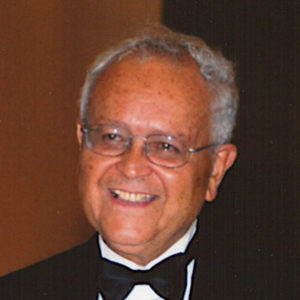Stanford’s William Gould on SCOTUS Labor Decision Cedar Point Nursery
On Wednesday, June 23, the U.S. Supreme Court issued its Cedar Point Nursery decision, ruling against union recruiting on California farms. The justices were split along ideological lines in the 6 to 3 decision, with Chief Justice Roberts writing for the majority. Here, Stanford Law Professor William B. Gould IV, former chairman of the National Labor Relations Board, shares his insights on decision.

“A half century of practicing, teaching and writing about labor law and labor-management relations have made me increasingly skeptical about the ability of the former to impact the latter. But one thing remains constant: the ability of the union to carry its message to workers on company property—a kind of public forum where everyone is congregated is vital to union organizing efforts and our public policy, which supports such. Today’s Supreme Court ruling holding that the ALRA regulation providing for limited union access to private property is an unconstitutional per se physical taking that ignores the peoples’ elected representatives in a manner akin to the Court’s 1930s rulings, which also invalidated social and economic legislation with which the Court disagreed. It is also another blow against vital public policy.
“The Court readily admits numerous exceptions to its holding—i.e., health and safety inspections, law enforcement, and the like. The key is, as the majority opinion asserts in today’s opinion, ‘no traditional background principle of property law requires the growers to admit union organizers onto their premises.’ Traditional? Property law? California has provided for temporary access for organizing purposes through labor law since 1975. As Justice Breyer said in dissent ( joined by two justices): ‘Do only those exceptions that existed in, say, 1789, count ?’“As the ALRB (of which I was chairman ) traversed the fields of California in 2016, we found that the plight of farm workers was worse than it was in 1975, given (1) their undocumented status which isolates them in fear of the outside world; (2)the inability of many aboriginal workers to speak English or Spanish; and (3)isolation through lack of iPhone access. The district court relied upon this reality in upholding the access rule. None of this central reality appeared in the Court’s opinion today. One of the Court’s casualties may well be the constitutionality of legislation passed by the House in Washington, pending before the Senate, which would give expanded access to reply to employer captive audience speeches filled with anti-union propaganda, and given on company time and property. This important right didn’t exist in 1789 either.”
William B. Gould IV, the Charles A. Beardsley Professor of Law, Emeritus, at Stanford Law School, is a prolific scholar of labor and discrimination law who has been an influential voice in worker–management relations for more than fifty years. Gould served as chairman of the National Labor Relations Board (NLRB, 1994–98) and subsequently served as chairman of the California Agricultural Labor Relations Board (2014-2017). He has been a member of the National Academy of Arbitrators since 1970. Early in his career, he served as a consultant to the EEOC and lead counsel on key employment discrimination cases. Gould was recently appointed by San Francisco Mayor London N. Breed to oversee an independent and comprehensive review of the city’s workplace policies and practices with a focus on claims of bias, harassment, discrimination, and retaliation.
Read Stanford’s William Gould on SCOTUS NCAA Student Athlete’s Decision
Gould’s most recent scholarship includes A Primer on American Labor Law (6th edition. 2019), and For Labor to Build Upon: Wars, Depression and Pandemic, New York: Cambridge University Press (forthcoming 2021).
